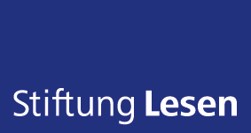The social context of the foundation´s work
Non-readers are disadvantaged in our society because the ability to read is foundational to the ability to learn. Reading competence is therefore essential for personal development, professional success and social engagement.
PISA studies and OECD’s reports on the literacy of German children have identified strong deficits in this field in the past years: one in five 15-year-olds only read at a rudimentary level (PISA studies of 2001 and 2009). According to the 2011 LEO study, around 7.5 million adults in this country are classified as functionally illiterate, and only 20% of the German population read books on a regular basis.
The mission of Stiftung Lesen is to ensure that every child and adult in Germany develops crucial reading and media skills, and enjoys reading. The goal is to create adequate and accessible programmes for every member of society in order to advance the overall level of literacy – regardless of financial, cultural or social background.
The vision of Stiftung Lesen
The Stiftung Lesen sees itself as the advocate for reading and media competency in Germany. Its mission is to facilitate the development of these skills by improving the conceptual and financial framework needed.
Within Germany, the foundation acts as stakeholder for the advancement of reading at national level and plays an important role in that field through contributing scientific research, political recommendations and programs. In addition, the foundation sees itself as mediator and coordinator of other agents in order to foster dialogue, exchange and cooperation between government institutions, politics, the public, science and economy. Internationally, the Stiftung Lesen is an active participant in the European reading advancement platform, EU Read, where it is one of ten member organisations from nine different countries.
The work of Stiftung Lesen
The Stiftung Lesen conducts comprehensive initiatives and programmes as well as pilot and research projects across Germany that complement and build on each other. The programmes start with early infant development in the family and nurseries when the foundations of reading competency are laid. Older children and teenagers are being reached through projects at school or outside school that cover their future development. In addition to the children benefitting directly, parents and other important members of their immediate networks, such as childcare workers, teachers, booksellers and library workers, form part of the target group. They are being reached with didactic material and specific training programmes.
In 2006 the Stiftung Lesen established its own Institute for Research in Reading and Media in order to align its projects with the latest scientific findings.
The institute is tasked, among other things, with conducting scientific research on the use of media, reading and reading socialisation, the supervision and evaluation of the foundation’s projects and the organisation of conferences on topics of reading and media research. Through this, the institute identifies new topics and trends and acts as an important initiator for the programming agenda of the Stiftung Lesen and the enhancement of reading in general.
The Institute for Research in Reading and Media consults and supports cooperation and network partners of the Stiftung Lesen and provides them with the findings of current research projects. The institute functions as a national point of contact and commentator on questions of reading and media research, and represents the foundation at conferences and panel discussions.
Structure and organisation
Created in 1988, the Stiftung Lesen is headed by three directors under the patronage of Germany’s president, Dr Frank-Walter Steinmeier. The Chief Executive is Dr Jörg F. Maas.
An interdisciplinary panel of scientific experts supports the Stiftung Lesen in developing new research topics and programmes by identifying emerging trends in reading and media competency.
The work of Stiftung Lesen is also supported numerous prominent Reading Ambassadors well known through sports, TV, cinema, politics and journalism and who volunteer as representatives of the foundation in various activities. In addition, some 9,000 volunteer readers, who are connected through the Reading Club of the Stiftung Lesen show great commitment, organising reading sessions in libraries, nurseries and schools. These volunteers are trained as project instructors by the Stiftung Lesen.
Address
Stiftung Lesen
Römerwall 40
D – 55131 Mainz
Germany
t +49 6131 288900
f +49 6131 230333
e via website
